Look around. From the stoves we use to cook our food to the lights we use to see at night to the air conditioning that helps make us more comfortable, energy is the common denominator. Despite being one of the fundamentals of modern life, billions of people across the world are living without basic energy services or they are lacking access completely.
Energy access is defined as the initial reliability and affordability of a household’s ability to take advantage of basic energy services. Around 14 percent of the world’s population lacks access to electricity and for many of those who do have access, it is often unreliable resulting in energy poverty. Energy poverty often interferes with the most basic activities of daily life such as cooking and yet approximately 1.1 billion people are affected by it.
Energy poverty goes further than just the difficulty of cooking and having access to heat and light. Without clean energy (energy from renewable sources that produces no emissions and often uses biomass), it becomes a virtual death sentence for both humans and the environment. Access to clean cooking fuel is twenty-two percent lower in rural areas compared to urban areas. And almost 4 million deaths a year are caused by a lack of clean cooking technology which leads people to rely on noxious methods such as kerosene, wood, charcoal, or animal waste.
Moreover, these problems not only affect developing countries but exist in the U.S. as well. According to the U.S. Energy Information Administration, nearly one-third of households have been reported to struggle to pay their energy bills. This statistic causes many to have inadequate heating or cooling, broken appliances, and forcing families to choose between other necessities or paying their electric bills. And over fifty percent of those who struggle are African-Americans followed closely by Hispanics. Communities of color already have unequal access to energy generation and battery storage which is bound to increase with the recent surge of power outages due to climate change. The HBCU Clean Energy Initiative is doing something about this. They are working with students and faculty to provide solar energy on HBCU/MSI campuses and in the underserved surrounding communities. In addition, the initiative also provides job training for community residents and hands-on experience for students that are studying environmental sciences.
However, understanding that energy poverty is a genuine and urgent problem means everyone needs to work towards finding solutions as soon as possible. Start by taking the following steps:
- TRACK ENERGY CONSUMPTION – Begin tracking how much energy you use in a day using an online calculator. Then compare your consumption with residents in disadvantaged communities. Once you get a overview of what your footprint looks like, research ways to reduce your consumption and learn about energy mixing in your region. When you lower your consumption of fossil-fuels, it also aids in pollution reduction and frees up access for those whose only option is non-renewable resources.
2. BECOME MORE ENERGY EFFICIENT – Begin exploring energy-efficient products for your home. Energystar.gov has a cost-effective selection of products that are certified by the Environmental Protection Agency as efficient. Also, try to incorporate other behaviors at home such as:
- Wash laundry with cold water
- Turn off air conditioning while sleeping or switch to eco mode if you have Nest or something similar
- Turn off the faucet while brushing your teeth
- Unplug appliances when not in use
- Use public transportation whenever possible
3. INVEST IN CLEAN ENERGY – If you are financially able and believe in supporting the clean energy movement, there are other ways to help:
- Vote for politicians that don’t subsidize the fossil fuel industry
- Invest in programs that help replace non-renewable energy
- Donate to organizations that focus on developing and distributing clean cooking technology
- Support groups that help disadvantaged communities gain access to solar energy
- Apply for funding\grants for sustainable community development
4. STAY INFORMED – The best way to get involved is to do your research and stay informed. Below are just a few of the resources available from the United States Environmental Protection Agency that provide ideas for creating healthy, sustainable, and equitable communities.
- Community Clean-Ups
- Apply for funding\grants for sustainable community development
- Use available tools such as ECHO which enable you to search for facilities in your community to see their environmental compliance record
Hopefully, innovation and technological solutions will help to address the inequities in clean energy access. In addition, each of us can make a difference with our own actions. If we all decided to make one substantial eco-friendly change, we could greatly impact the world and provide for those in need.
For more information and ways to help, visit the HBCU Clean Energy Initiative website.

